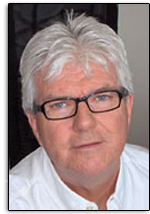The debate is over about whether or not climate change is real. Irrefutable evidence from around the world - Including extreme weather events, record temperatures, retreating glaciers and rising sea levels - all point to the fact that it is happening now and at rates much faster than previously thought.
The overwhelming majority of scientists who study climate change agree that human activity is responsible for changing the climate. The United Nations Intergovernmental Panel on Climate Change (IPCC) is one of the largest bodies of international scientists ever assembled to study a scientific issue, involving more than 2,500 scientists from more than 130 countries. The IPCC has concluded that most of the warming observed during the past 50 years is attributable to human activities. Its findings have been publicly endorsed by the national academies of science of all G-8 nations, as well as those of China, India and Brazil.
Despite the international scientific community's consensus on climate change, a small number of critics continue to deny that climate change exists or that humans are causing it. Widely known as climate change skeptics' or deniers,' these individuals are generally not climate scientists and do not debate the science with the climate scientists directly - for example, by publishing in peer-reviewed scientific journals, or participating in international conferences on climate science. Instead, they focus their attention on the media, the general public and policy-makers with the goal of delaying action on climate change.1
As much as we seem to be doing to developing renewable energy, the climate change deniers are still around. I recently came across a passage that really hits the mark concerning this problem.
In Greek mythology, sirens were seductive women who sang irresistibly beautiful songs to lure sailors. Unsuspecting seafarers, mesmerized by the music of these femme fatales, were enticed to sail ever closer to the rocky coasts of the sirens' islands. Listening to the sirens' songs ensured a horrible fate, as the sailors' boats crashed upon the rocks. Climate denial is a kind of siren song. It's seductive to believe climate disruption might not be true or as bad as it's made out to be, but following the siren song of denial takes us into very dangerous waters.
Nobody in their right mind wants climate disruption to be true. Only a sociopath would take any pleasure, schadenfreude, in being right on this one. Even people who work hard to seek the truth about climate disruption have trouble believing it's quite as bad as the evidence would have it. That's because it's hard to believe and easy to deny. Our minds will play all sorts of tricks to keep us from absorbing that truth. It's perfectly natural to heed the siren song of denial, which makes it even more dangerous.
Denial comes in many forms. You don't have to think that climate disruption is a load of bunk to be in denial. Some accept its real but deny the consequences. Some ignore it all together. Lots of people sit somewhere in between: the SUV driver who can't admit he's contributing to the problem, the captain of industry who wants to keep turning a profit the same old way, an anxious mother who turns her thoughts to something less worrisome. The most slippery form of denial is to acknowledge the problem but dismiss the consequences. Politicians who admit climate disruption is a threat yet speak of allowing carbon counts to rise to 550 parts per million (ppm) because it's politically expedient are in denial. We are in some degree of denial. It's natural because climate disruption is scary.2
Not surprisingly, the deniers have received significant funding from coal and oil companies. They also have well-documented connections with public relations firms that have set up industry-funded lobby groups to, in the words of one leaked memo, "reposition global warming as theory (not fact)."
Over the years, the deniers have employed a wide range of arguments against taking action on climate change, some of which contradict each other. For example, they have claimed that:
Climate change is not occurring
- The global climate is actually getting colder
- The global climate is getting warmer, but not because of human activities
- The global climate is getting warmer, in part because of human activities, but this will create greater benefits than costs
- The global climate is getting warmer, in part because of human activities, but the impacts are not sufficient to require any policy response
After 15 years of increasingly definitive scientific studies attesting to the reality and significance of global climate change, the deniers' tactics have shifted. Many deniers no longer deny that climate change is happening, but instead argue that the cost of taking action is too high - or even worse, that it is too late to take action. All of these arguments are false and are rejected by the scientific community at large.
To gain an understanding of the level of scientific consensus on climate change, one study examined every article on climate change published in peer-reviewed scientific journals over a 10-year period. Of the 928 articles on climate change the authors found, not one of them disagreed with the consensus position that climate change is happening and is human-induced.
These findings contrast dramatically with the popular media's reporting on climate change. One study analyzed coverage of climate change in four influential American newspapers over a 14-year period. It found that more than half of the articles discussing climate change gave equal weight to the scientifically discredited views of the deniers.
This discrepancy is largely due to the media's drive for balance' in reporting. Journalists are trained to identify one position on any issue, and then seek out a conflicting position, providing both sides with roughly equal attention. Unfortunately, this balance' does not always correspond with the actual prevalence of each view within society, and can result in unintended bias. This has been the case with reporting on climate change, and as a result, many people believe that the reality of climate change is still being debated by scientists when it is not.3
While some level of debate is useful when looking at major social problems, society must eventually move on and actually address the issue. To do nothing about the problem of climate change is akin to letting a fire burn down a building because the precise temperature of the flames is unknown, or to not address the problem of smoking because one or two doctors still claim that it does not cause lung cancer. As the United Nations Framework Convention on Climate Change (UNFCCC) acknowledges, a lack of full scientific certainty about some aspects of climate change is not a reason for delaying an immediate response that will, at a reasonable cost, prevent dangerous consequences in the climate system.
1 davidsuzuki.org/issues/climate/science/climate-change-basics/climate-change-deniers
2 Tom Rand. "The Siren Song of Denial," Waking the Frog: Solutions for Our Climate Change Paralysis, Toronto (2014): 49, 50
3 Suzuki, op.cit.











